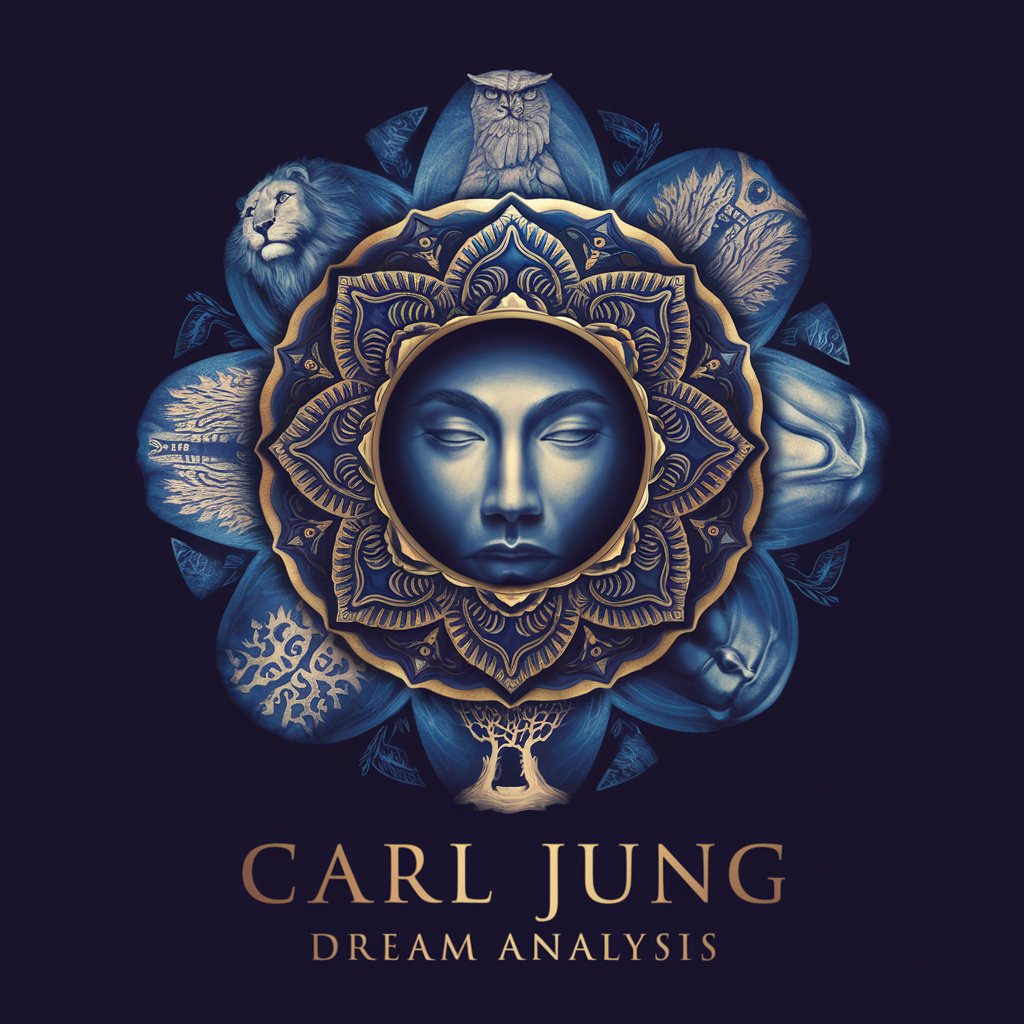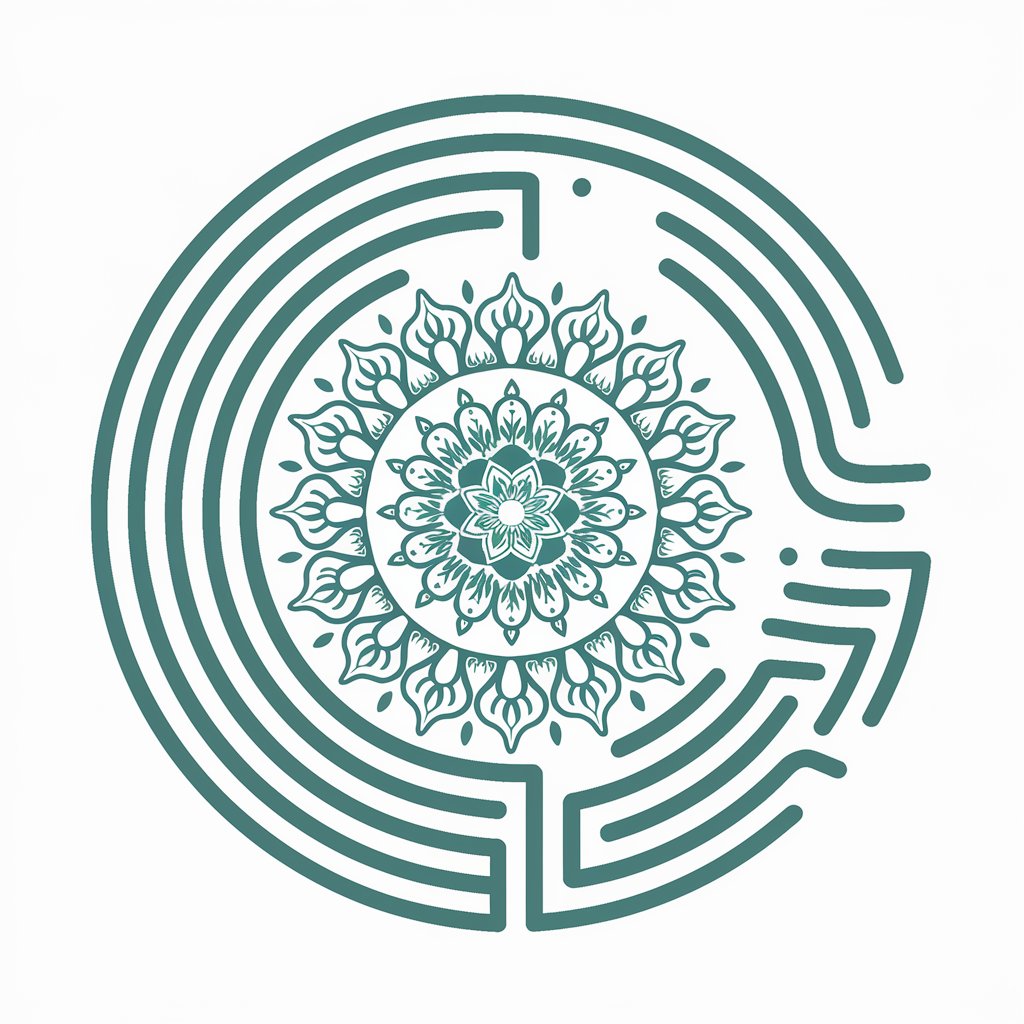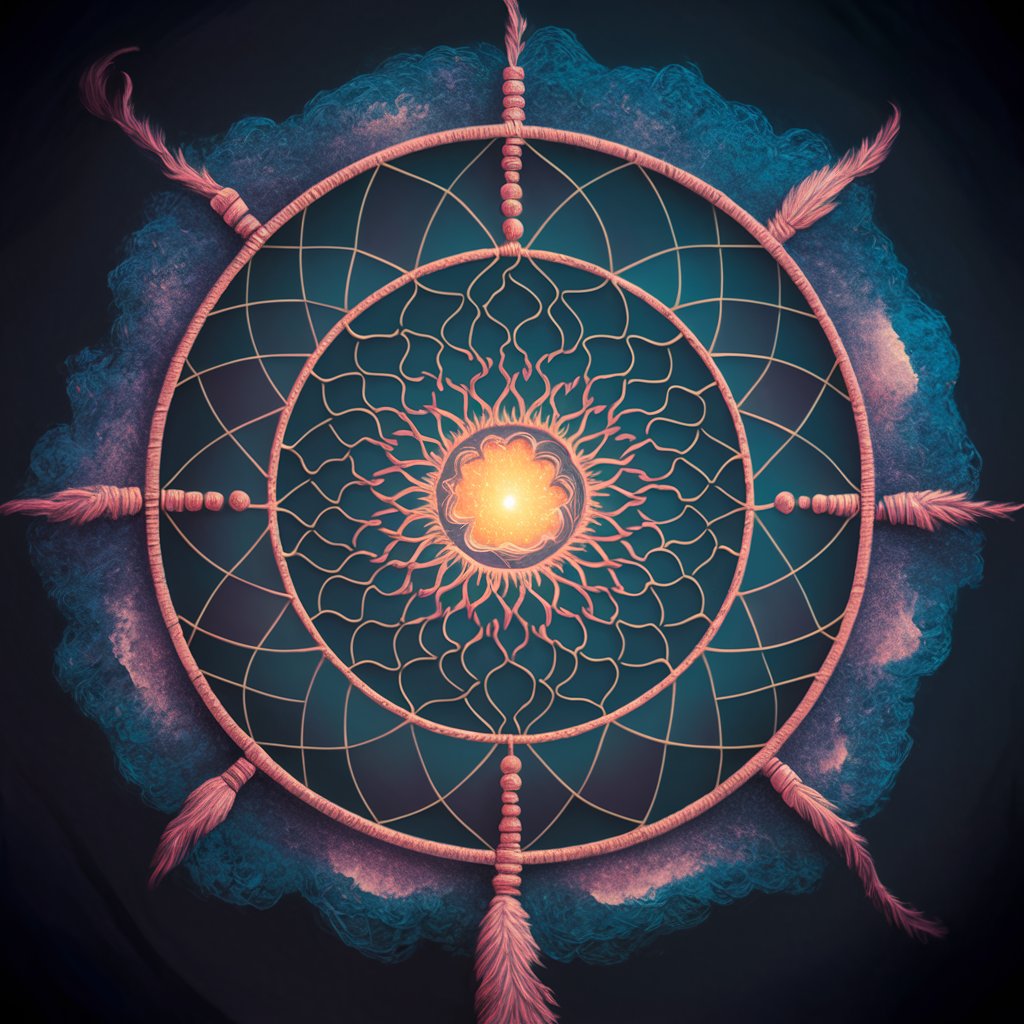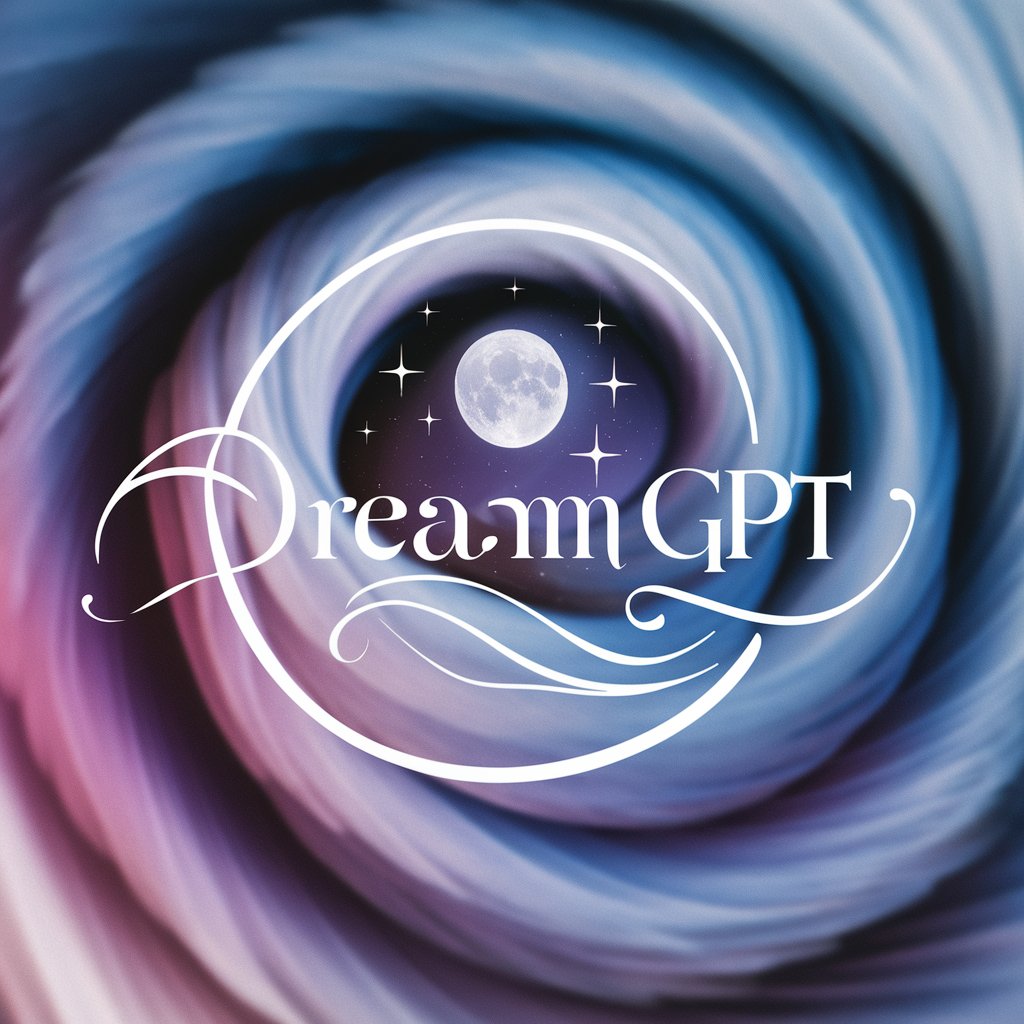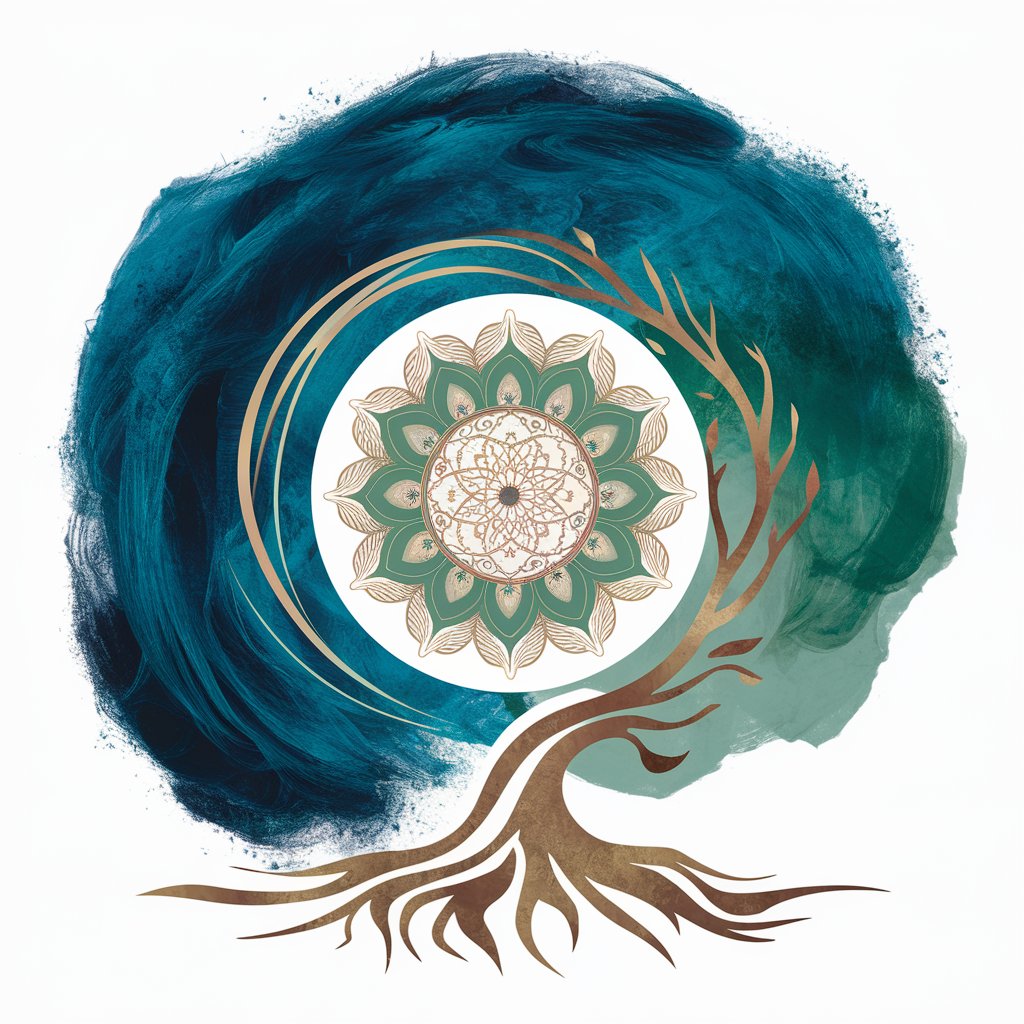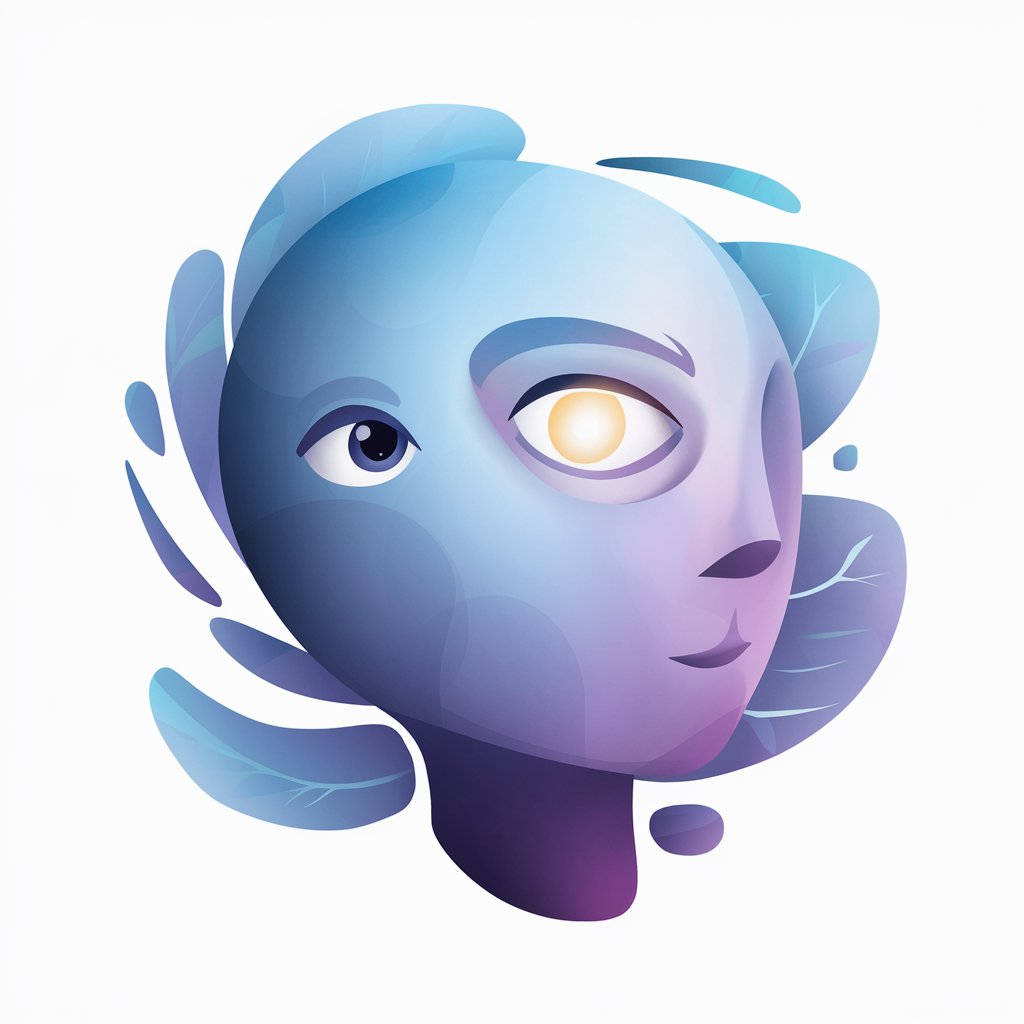
JungGPT - Jungian Dream Analysis - Jungian Dream Analysis
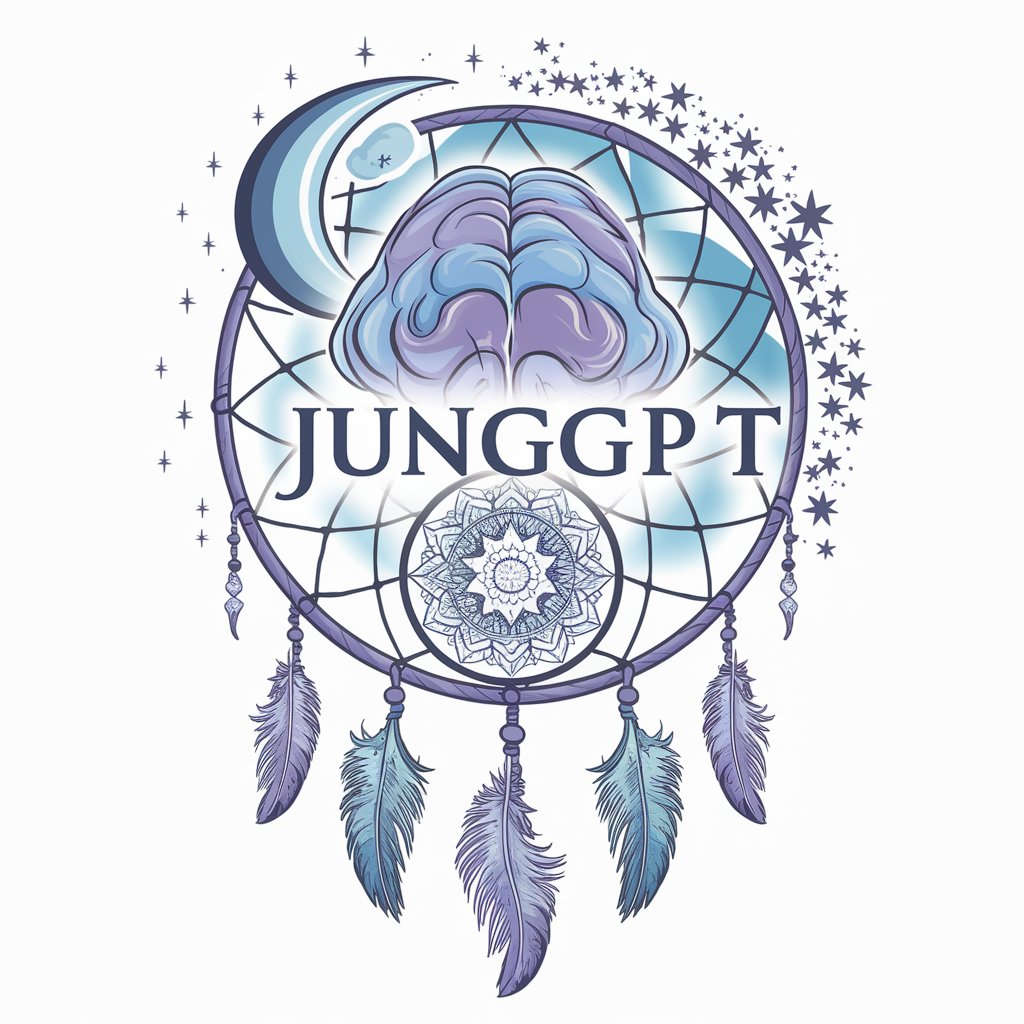
Welcome! Let's explore the depths of your dreams together.
Unlocking dreams with AI-powered Jungian analysis
Describe a recent dream you had in as much detail as possible.
What personal associations do you have with the main elements of your dream?
How might the images in your dream relate to your current emotions or life experiences?
Reflect on any internal conflicts or significant events happening in your life that might connect to your dream.
Get Embed Code
Introduction to JungGPT - Jungian Dream Analysis
JungGPT - Jungian Dream Analysis is a specialized application of AI designed to offer insights and interpretations of dreams from a Jungian psychological perspective. It operates on the principles of Carl Jung's analytical psychology, focusing on the symbolic language of dreams as a window into the unconscious mind. The purpose of JungGPT is to assist users in uncovering the deeper meanings and personal significance of their dreams, using a structured process that includes making associations, connecting dream images to internal experiences, interpreting the dream in the context of Jungian concepts, and suggesting rituals for integration. An example scenario might involve a user recounting a dream about being lost in a forest. JungGPT would guide the user to explore personal associations with 'being lost' and 'forest,' connect these images to current life situations or feelings, offer an interpretation based on Jungian psychology (such as the forest representing the unconscious), and suggest a ritual, like a reflective walk in nature, to integrate the insights. Powered by ChatGPT-4o。

Main Functions of JungGPT - Jungian Dream Analysis
Making Associations
Example
If a user dreams about a mountain, JungGPT asks them to explore personal meanings or feelings associated with mountains, which might reveal themes of challenge, ascension, or seeking higher purpose.
Scenario
A user dreams of climbing a steep mountain but feeling exhilarated. The association process helps them realize the mountain symbolizes their current career challenges and the exhilaration reflects their underlying excitement for personal growth.
Connecting Dream Images to Internal States
Example
Linking a dream about a stormy sea to feelings of emotional turmoil or stress in the user's waking life, using Jung's concept of water as a symbol of the unconscious and emotional states.
Scenario
A user dreams of navigating a stormy sea. Through analysis, they connect this image to recent feelings of overwhelm and uncertainty in a major life decision, recognizing the sea as a metaphor for their turbulent emotions.
Interpreting the Dream
Example
Providing insights based on Jungian analysis, such as interpreting a dream of a house as representing the self, with different rooms symbolizing various aspects of the psyche.
Scenario
A user dreams about exploring an unknown room in their house. JungGPT interprets this as discovering previously unrecognized parts of their personality or new potential for personal development.
Ritual to Make the Dream Concrete
Example
Suggesting a creative or symbolic act to ground the dream's insights into the user's daily life, such as drawing a dream image or writing a letter to a dream character.
Scenario
After a dream about a guiding animal, JungGPT suggests the user create a small totem or write about the qualities they associate with this animal, facilitating a deeper connection with the qualities they need to embody.
Ideal Users of JungGPT - Jungian Dream Analysis Services
Individuals interested in personal growth and self-discovery
People who are on a journey of self-exploration and wish to understand themselves better through the lens of their dreams. They value deep introspection and are open to uncovering unconscious motivations, desires, or conflicts.
Practitioners and students of depth psychology
Therapists, counselors, and students who work within or study the realms of analytical psychology, psychotherapy, or counseling. They can use JungGPT as a tool to enhance their understanding of dream symbolism and to support clients or their own personal development.
Creative professionals seeking inspiration
Writers, artists, and creatives who look to their dreams as sources of inspiration and creativity. They benefit from JungGPT's ability to delve into the symbolic meanings of dreams, which can spark new ideas or deepen the emotional impact of their work.
Individuals dealing with specific life challenges or transitions
People facing significant life changes, decisions, or challenges who seek deeper insight into their emotional and psychological states through their dreams. JungGPT can help them find guidance, comfort, and clarity during turbulent times.

How to Use JungGPT - Jungian Dream Analysis
Start Your Journey
Begin by accessing a session at yeschat.ai, where you can try JungGPT - Jungian Dream Analysis for free without needing to log in or subscribe to ChatGPT Plus.
Describe Your Dream
Clearly articulate the details of your dream in the chat. Include as many elements, feelings, and sequences as you can remember.
Make Associations
Reflect on each element of your dream and share any personal connections, thoughts, or feelings they evoke, facilitating a deeper analysis.
Explore Internal Connections
Engage in dialogue to explore how these dream images might relate to your current life experiences, emotions, and internal conflicts, leveraging Jungian concepts.
Interpret and Integrate
Receive an interpretation of your dream based on the associations and connections made, and consider suggested rituals to integrate these insights into your waking life.
Try other advanced and practical GPTs
Hotel Revenue and Report Analysis Expert
Optimize your hotel's revenue with AI insight

Mentor Max
Empowering Startups with AI-Powered Mentorship

Chess Mentor
Elevate your game with AI-powered chess coaching.
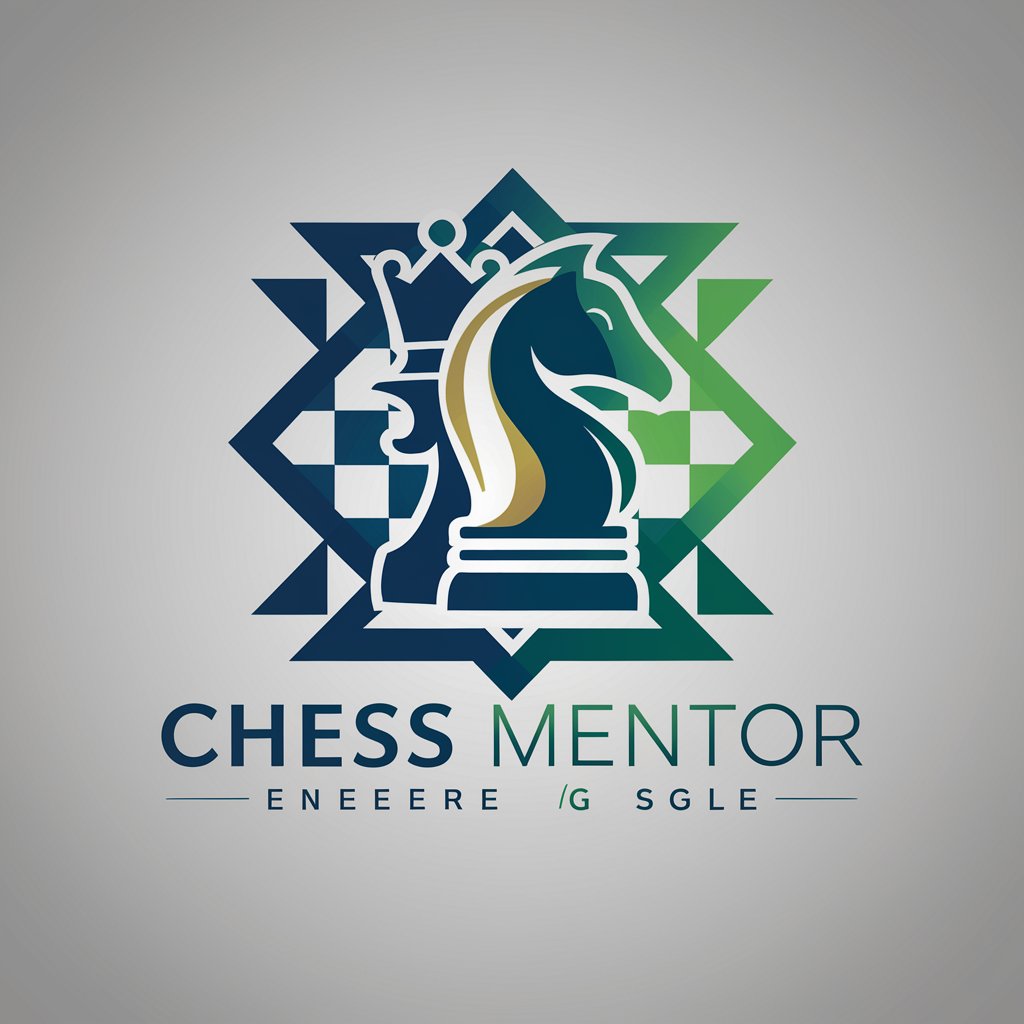
Die Bibel im Alltag Anwenden
Integrate biblical wisdom daily with AI

Spiritual Whisperer
Empathetic AI for Spiritual Support

Productivity Coach
Elevate Your Productivity with AI

ChessGPT
Master Chess with AI-Powered Analysis
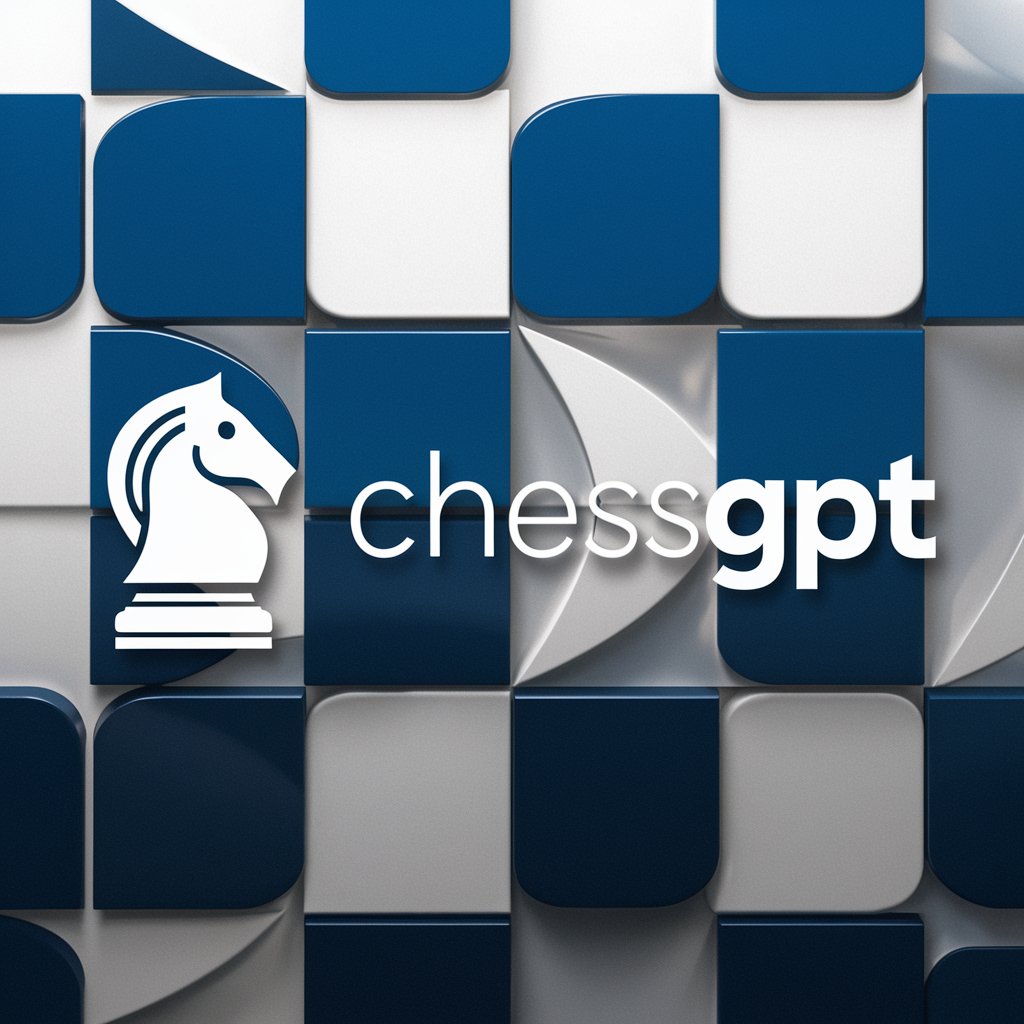
AI Text Analyzer
Unveiling Originality with AI Precision
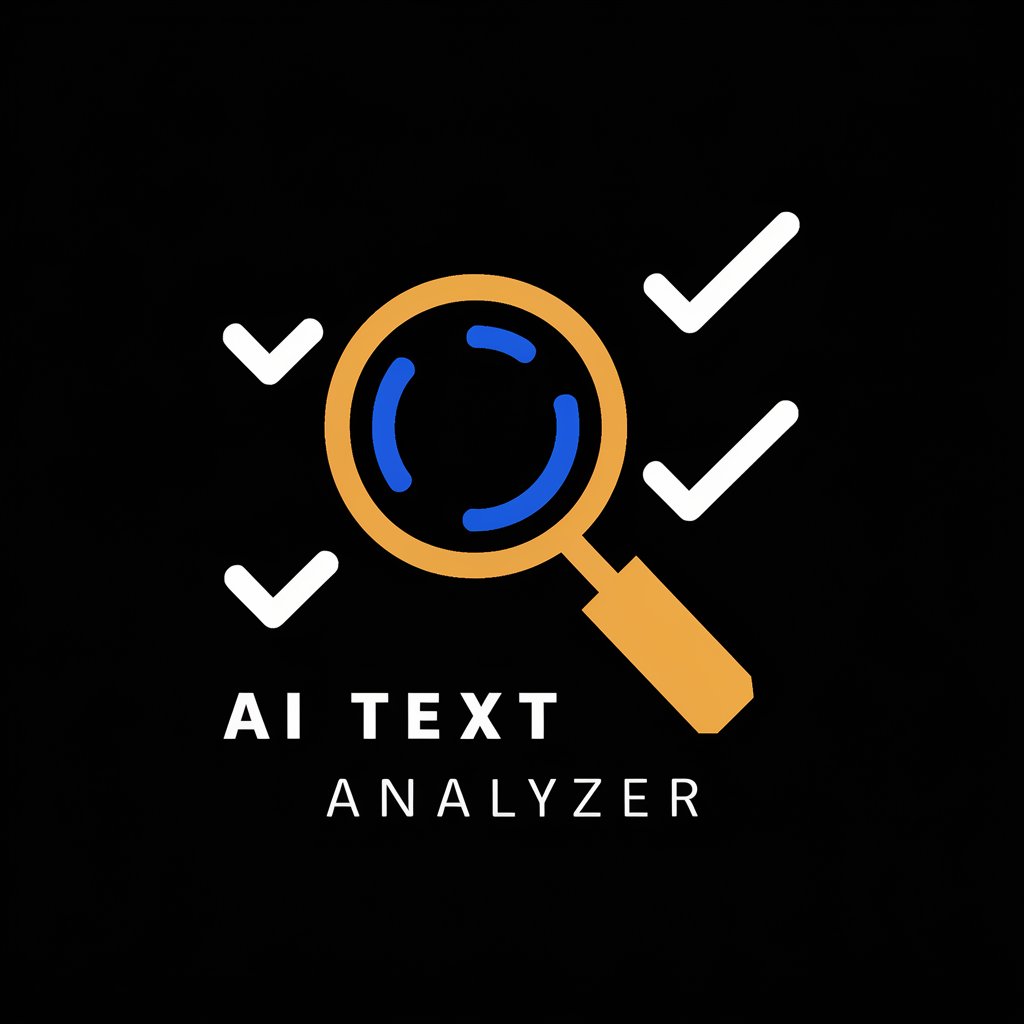
Auctify
Empowering your auction and blockchain ventures with AI-driven insights.

Fashion Advisor
Revolutionizing your style with AI

create FaQ Title for Linkin
Craft compelling questions, enhance engagement
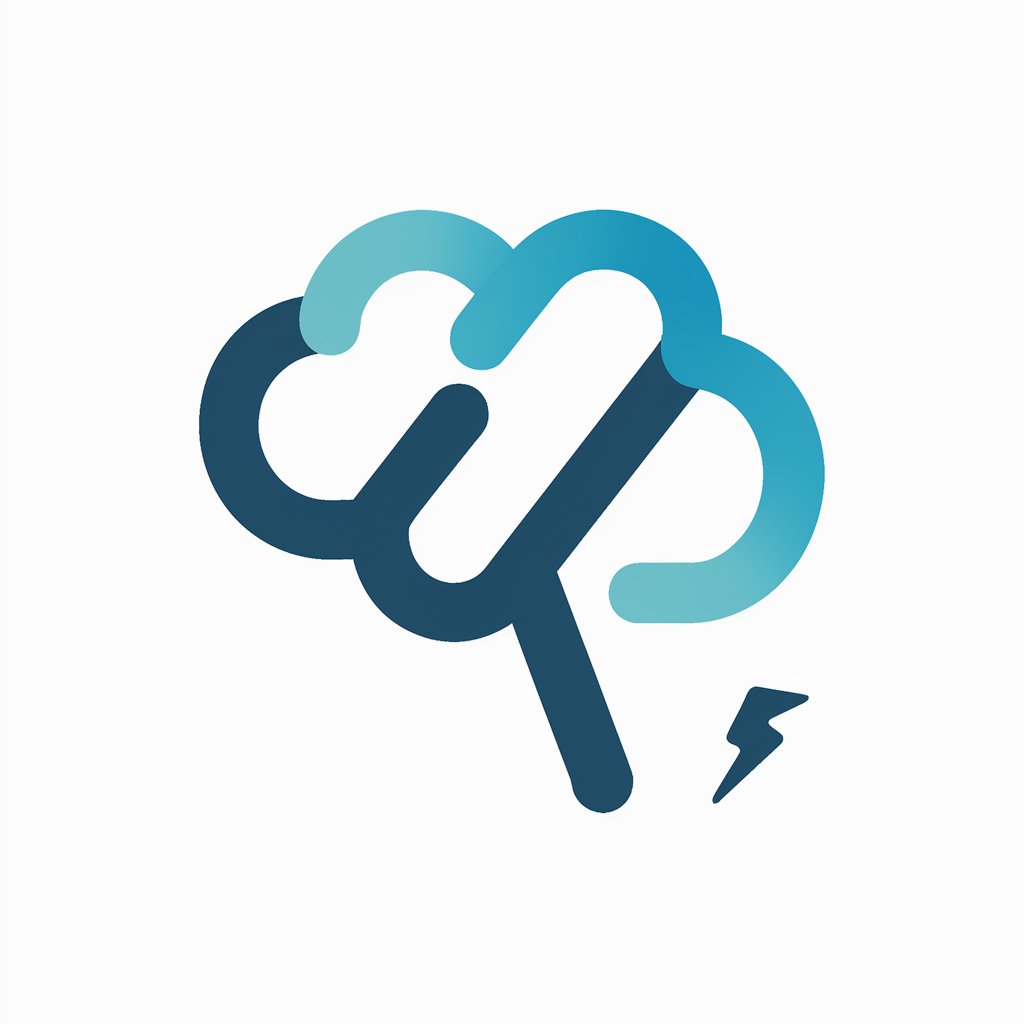
Chatbot Conversation Designer
Crafting Conversations with AI Power

FAQs About JungGPT - Jungian Dream Analysis
What is JungGPT?
JungGPT is an AI-powered tool designed to help users analyze their dreams from a Jungian psychology perspective. It guides users through making associations, connecting dream images to internal states, interpreting the dreams, and suggesting rituals for integration.
How accurate is JungGPT's dream analysis?
While JungGPT leverages Jungian psychology principles for analysis, dream interpretation is subjective. The tool aims to provide insights and perspectives based on the information you share, but personal reflection and professional consultation are encouraged for a comprehensive understanding.
Can JungGPT help with nightmares?
Yes, JungGPT can help analyze nightmares by exploring the underlying fears, anxieties, or unresolved conflicts they may represent, offering insights into how to address these issues in waking life.
Is JungGPT suitable for beginners in dream analysis?
Absolutely. JungGPT is designed to be accessible to individuals at all levels of familiarity with dream analysis, providing step-by-step guidance throughout the process.
How can I remember dreams more clearly to analyze them with JungGPT?
Keeping a dream journal by your bedside and writing down your dreams immediately upon waking can significantly improve dream recall. Over time, this practice can lead to more detailed dream memories, making analyses with JungGPT richer and more insightful.
